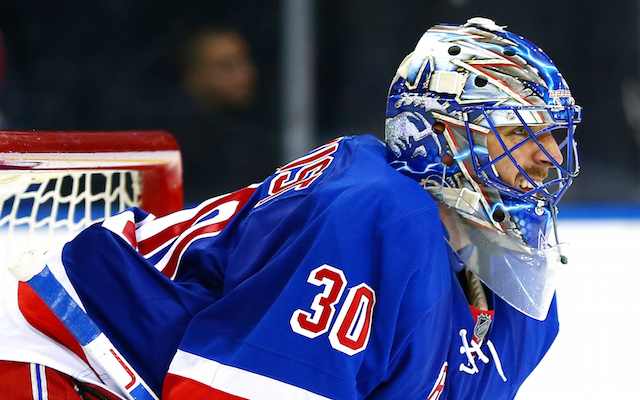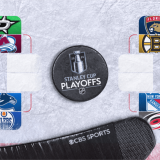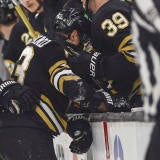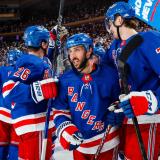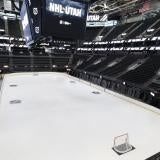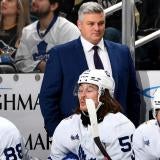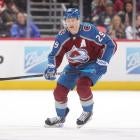The New York Rangers have been, by pretty much any objective measure, one of the most successful teams in the Eastern Conference over the past four years. Their 214 regular season wins as of Monday are the second most in the conference since the start of the 2011-12 season (trailing only Pittsburgh's 217), while their 39 playoff wins and three trips to the conference final are by far the most. Nobody else in the East has more than 24 playoff wins and more than one trip to the conference final since 2012.
They will be returning to the playoffs once again this season, and because the East is pretty much a wide open free-for-all they should have an opportunity to go on another deep run into the playoffs. If they do make another run at the conference title it is going to be for one very specific reason. That reason is Henrik Lundqvist. It has become increasingly clear as the season has gone on that any success they have as a team will depend almost entirely on Lundqvist's ability to carry them as far as he can.
It's not that the team in front of him is completely lacking in talent, especially when it comes to their forwards. They have a pretty deep group up front with three or four lines that can all chip in some offense, something that has allowed them to be a top-10 team in goals even though they lack a true difference-maker that can be a go-to-guy to drive the team. Rick Nash has the potential to be that player when he is healthy (he did score 42 goals a year ago), but he turns 32 in June and has already shown signs of slowing down this season when he has been on the ice.
The problem for the Rangers, and the area that has the potential to hold them back, is they are not a particularly good defensive team in front of their goalie. At the risk of overstating things, they are probably closer to being bad on the blue line than good, at least as far as Stanley Cup contenders go. In fact, they might actually be bad.
When you look at the names on the roster, that can be a difficult thing to accept, because Ryan McDonagh, Dan Girardi and Marc Staal are all known commodities whose names still carry quite a bit of clout around the league. They are still viewed as being shut-down type players who can lock a game down and grind out a close victory. At one time, they were that kind of group and were a big part of the Rangers' success.
Now, it is more about their reputation instead of their actual performance. When you look at the numbers, there are are a lot of red flags with this group.
As a team, the Rangers give up 57 total shot attempts per 60 minutes of 5-on-5 play, a number that is the eighth-worst mark in the league and second worst among teams in a playoff position. It is a sign that they are either spending too much time in their own zone, or not doing enough to keep the puck away from their goalie when they are in it.
Keep in mind that only three of the bottom-15 teams in that category (Boston, New York, Minnesota and the New York Islanders) currently occupy a playoff spot. Since 2007-08, only two of the 16 Stanley Cup finalists finished lower than 20th (and both, the 2011 Bruins and 2008 Penguins reached the Final on the strength of great goaltending) while 12 of them were in the top 11.
Eight of them were in the top three.
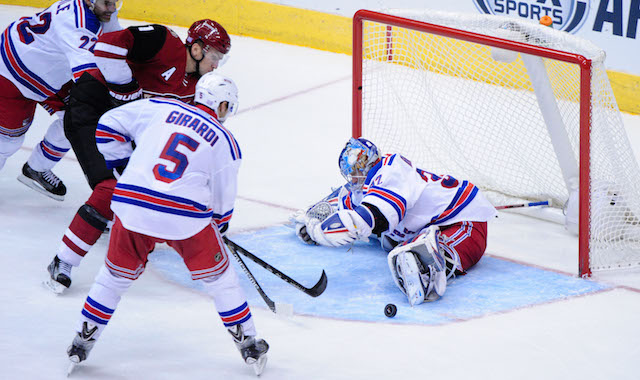
The eye test seems to confirm the idea the Rangers are spending too much time (and struggling in) their own zone, and what is even more concerning is the fact they seem to be getting worse as the season goes on. Especially when it came to their games this past weekend against Detroit and Pittsburgh. The Red Wings spent most of Saturday's game skating circles around the Rangers defense in the offensive zone, only to have Lundqvist hold them off for as long as he could before finally giving up a power-play goal that tied the game and then losing in overtime.
After a fast start against the Penguins the next day, they faded down the stretch on Sunday and allowed five goals, 33 shots on goal, and 57 total shot attempts to a Pittsburgh team that was playing without Evgeni Malkin.
So what is the problem here? It really comes down to the makeup of the roster and the fact they committed to a lot of players on defense that have simply started to get older, started to decline, and simply don't do a lot of the things you want from a championship defense in 2016.
Other than Keith Yandle, who is a free agent after this season, they do not have enough players on their blue line that can keep the play moving up the ice. They are slower than their competition on most nights, and instead of a smooth breakout or defensemen that can safely skate the puck out of danger, they are often times simply chipping the puck off the glass and trying to desperately pack everybody in between the dots in an effort to keep teams from scoring.
This is not an ideal way to play. It's also boring. Terribly, terribly boring.
Defense in today's NHL isn't about standing in front of the net, beating up your opponent, and defending your zone. It is about winning races to pucks, gaining possession, and making plays with the puck to get it out of the zone so you don't have to defend.
This is an especially big problem for Girardi and Staal, both of whom still play close to 20 minutes per night. When either one of them is on the ice the Rangers just simply get pummeled on the shot chart. Of the 184 defensemen across the league that have played at least 500 minutes of even-strength hockey this season, Staal and Girardi rank 175th and 184th respectively in terms of their team's shot differential when they are on the ice.
That means no defenseman in the NHL sees his team get outshot by a wider margin when he is on the ice than Girardi, while Staal isn't much better. There is absolutely no way that can be painted as a positive, especially when it has a crushing impact on a player like McDonagh (still their best all-around defenseman) who has been Girardi's partner for most of the season. When McDonagh is paired with him the Rangers give up more than 63 shot attempts per 60 minutes of ice-time and are only a 42 percent possession team. That is just ... bad, and it creates a lot of unnecessary work for Lundqvist.
Again: How are you helping your team when you are spending your entire shift pinned deep in your zone trying to hold off the other team instead of creating offense of your own?
When McDonagh is paired with any other defender on the team, the Rangers only give up 46 shot attempts and are a 57 percent possession team. It's like you're getting two entirely different players based simply on who he is playing next to.
At this point there isn't anything the Rangers can do about the makeup of their defense other than try to shuffle pairings around to find some that are not a complete mess. This is the group they have assembled, and they have a lot of money tied up in them for the foreseeable future which means the problem only gets worse without some major changes in the offseason. Until they find a way to fix it, it is going to put an awful lot of pressure on Lundqvist to keep playing at an elite level.
A great goalie can mask a lot of flaws on a team for a while, and so far Lundqvist has done just that for the Rangers. But it is eventually going to come back and bite them.
For the Rangers, their postseason success will depend on how long Lundqvist can keep carrying them.
[Data in this post via Hockeyanalysis.com and War-On-Ice]
